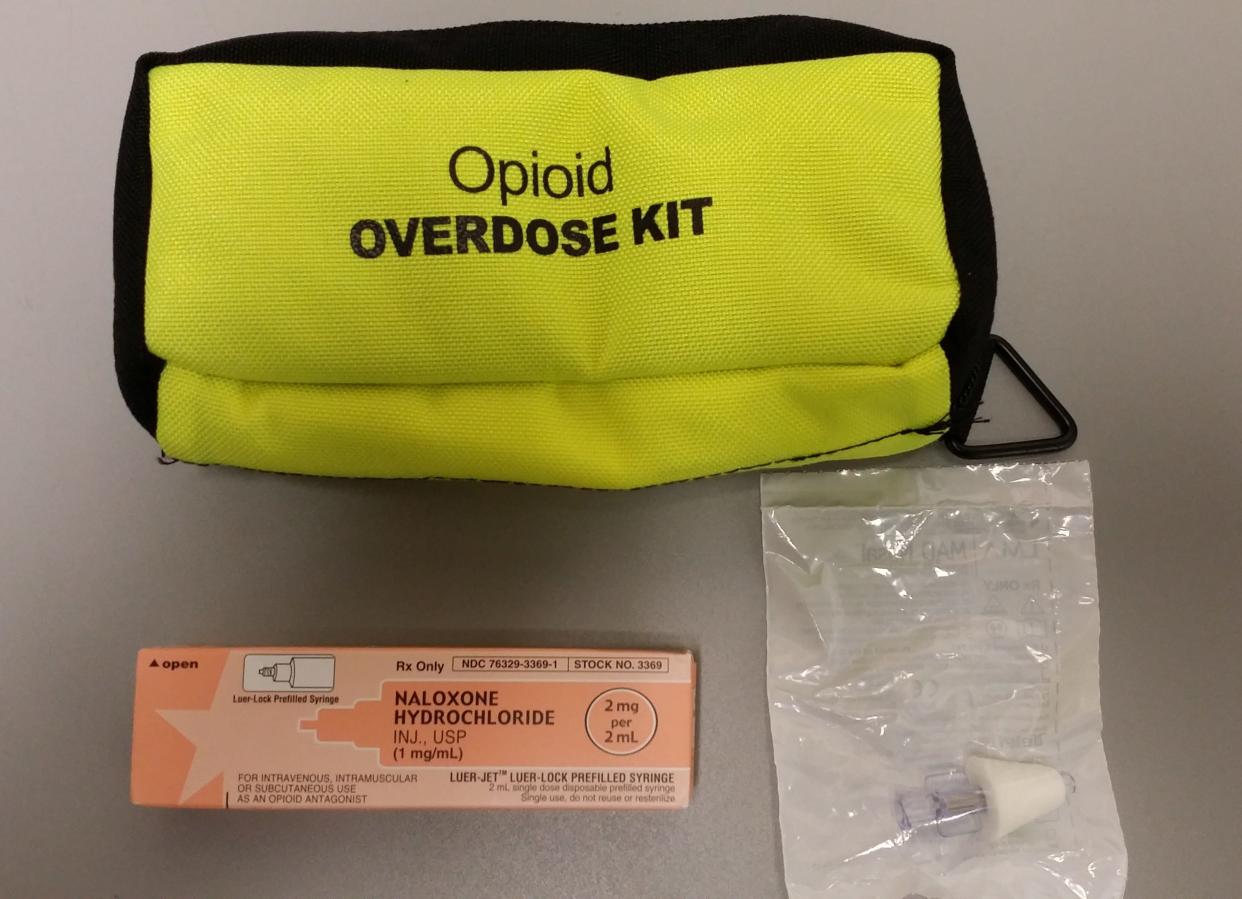OneOhio, nonprofit in charge of state opioid money, sued over transparency

The nonprofit tasked with distributing $440 million in opioid settlement money isn't following public records and meeting laws, according to lawsuits filed Monday.
Lawsuits filed against the group, the OneOhio Recovery Foundation, accuse the nonprofit of "shady maneuvering" by classifying itself as a private nonprofit organization to avoid following open records law.
More: Nonprofit overseeing Ohio's opioid litigation money begins work amid transparency concerns
But OneOhio has maintained that it's simply trying to follow what the settlement has called for – for it to be a private nonprofit organization – and that openly saying it is a public body would jeopardize that status.
Harm Reduction Ohio, an advocacy group that works to reverse overdoses, filed one lawsuit in the Ohio Supreme Court in the hopes of forcing the foundation to turn over requested records. Another was filed in the Franklin County Common Pleas court to declare that OneOhio is a public body – not a private nonprofit – and has to comply with open records law.
The nonprofit has dismissed those lawsuits as obstructive to its goal of tackling the opioid crisis.
"An important lesson of the opiate epidemic is that communities must pull together, and the Foundation is committed to helping them do that – as quickly as possible," said Connie Luck, spokesperson for OneOhio. "It is unfortunate that anyone would want to take any steps at all to block or slow down Ohio’s communities from getting the relief they need to support recovery and prevention.”
How OneOhio is set up
The $440 million is part of an $808 million settlement reached last year between Ohio Attorney General Dave Yost and three major drug distributors that were sued for their role in the opioid crisis.
Around 30% will go directly to local governments and 15% directly to the state. The rest goes to the OneOhio Recovery Foundation, consisting of appointments by the governor, attorney general, legislative leaders and 19 regions across Ohio. It's tasked with giving out grants and finding long-term solutions to the opioid epidemic.
The settlement calls for OneOhio to be a private foundation, with the idea that its money could not be taken away from the state government for other purposes. That had happened with the state's tobacco settlement money.
But the memorandum detailing the settlement says that "meetings shall be open, and documents shall be public to the same extent they would be if the Foundation was a public entity."
However, the foundation has stated that it is not subject to open meeting laws, in part given its status as a private foundation.
The issue: The memorandum wasn't drafted with nonprofit corporation law in mind. Many parts of the memorandum involve a lot of interaction between OneOhio and government officials, making OneOhio seem like a government body. That could jeopardize OneOhio's application to the Internal Revenue Service to be a nonprofit.
As a result, OneOhio has had difficulty navigating that fine line. In its most recent meeting, some members were concerned with a memorandum calling on the governor to choose an executive director, for instance.
6 Franklin County Filing - ... by Titus Wu
Ohio Supreme Court OneOhio by Titus Wu
At the same time, Dennis Cuachon, head of Harm Reduction Ohio, has alleged that OneOhio not being distinguished as a public body is harmful to victims of drug abuse and their families.
"People who’ve lost loved ones deserve to know how opioid settlement money is handled and be involved in those decisions,” Cauchon said. “Sadly, the opioid settlement board has been secretive and hostile to the impacted population. This has to change."
Titus Wu is a reporter for the USA TODAY Network Ohio Bureau, which serves the Columbus Dispatch, Cincinnati Enquirer, Akron Beacon Journal and 18 other affiliated news organizations across Ohio.
This article originally appeared on The Columbus Dispatch: Lawsuit filed against group in charge of Ohio's opioid money

